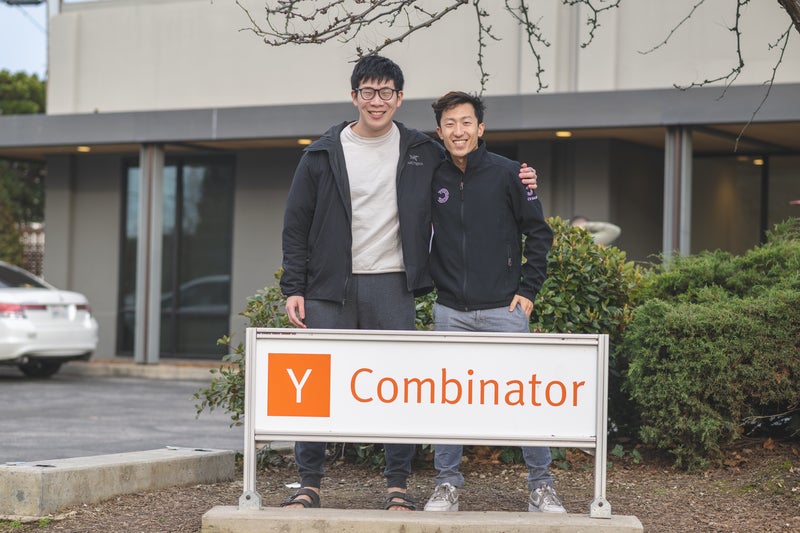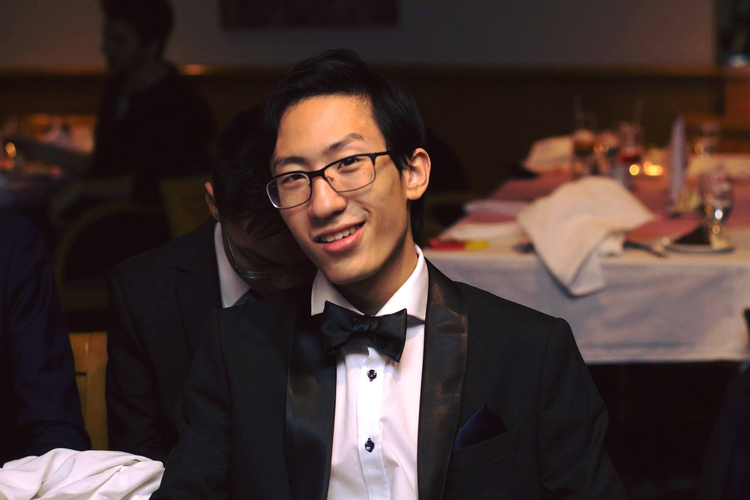Cheriton School of Computer Science alumnus Jeff An (BCS ’20) co-founded Momentic: an AI startup accelerating software testing.
Recently, Momentic was chosen for the Y Combinator’s (YC) Winter 2024 cohort, joining 11 other startups founded by the University of Waterloo’s students and alumni.
Based in Silicon Valley, YC is one of the world’s largest and most esteemed startup accelerators. Past YC recipients include DoorDash, Dropbox, and Instacart.
Each startup receives $500,000 in funding and other resources such as networking sessions, alumni talks and mentorship, particularly on finance, public relations, or product design. However, YC is extremely competitive— the latest cohort had an acceptance rate of less than one percent, among 27,000 applications.
We connected with Jeff to discuss Momentic and the company’s future funding goals. He also reflects on his experience with YC and the University of Waterloo.

Jeff An (right) co-founded Momentic, an innovative startup that uses AI to automate software testing. It is among 260 startups chosen for the highly competitive Y Combinator program.
How would you describe your company?
Momentic automates software testing with AI.
Companies like Chegg and Retool use Momentic to author end-to-end tests faster compared to traditional tools. We make AI do the heavy lifting so that software engineers can focus on shipping features: interacting with elements on the page, reasoning about correctness, conducting visual comparisons, and even generating whole test cases.
Our core product is a low-code test editor that replaces traditional test scripts with AI-powered, self-healing steps. It seamlessly integrates into standard engineering workflows: from local development to continuous integration (CI)/continuous delivery (CD) environments and production. Once our AI intuitively understands a product, it can propose new test plans and test cases from scratch.
What issues is your company trying to resolve?
Today, software companies have three options when it comes to testing:
- Not investing in any testing, which leads to poor product quality, frequent outages, and lost revenue.
- Hiring or outsourcing quality assurance, which is expensive and rarely effective at scale.
- Dedicating 30 per cent of each engineer’s time to writing or maintaining tests, reducing product velocity.
We believe that now is the first moment in history where we can offer a fourth option: let a large language model (LLM) test your application for you. We’re building a world where shipping faster doesn’t necessarily entail shipping at a lower quality.
How do you feel about being a recipient?
YC provided us with a ton of value. For example, we received a lot of advice and mentorship for sales and Go-to-market strategy (GTM), which is a relatively novel area for us as two technical co-founders.
The YC network has also been amazing. Every founder we’ve met is smart, passionate, and determined to make an impact in the world. Everyone understands how hard the process is, and there’s an innate sense of camaraderie and openness as a result.
How will your start-up use this funding? Any next steps?
On the business side, we are actively looking to hire one to two founding engineers and a sales development representative in the Bay Area. We’re also planning on hosting a fourth or fifth-year Waterloo co-op student in the fall.
On the technical side, we’re planning on using the funding to invest in improving our core AI capabilities, which will entail fine-tuning state-of-the-art open-source models.
Jeff at the 2016 Faculty of Math's Grad Ball.
How did your education and experience at Waterloo prepare you for your career, particularly in founding and managing your start-up?
My co-op experiences ranged from small 15-person startups to FAANG* companies. I think the diversity of these work experiences really helped me build a broad technical foundation, which is required for operating a startup because you’re responsible for everything: frontend, backend, infrastructure, and AI.
The core concepts from my CS 486 (Introduction to AI taught by Professor Kate Larson) and CS 454 (Distributed Systems taught by Professor Samer Al Kiswany) classes are also still very applicable in my day-to-day work.
*FAANG refers to the big five tech companies and stands for Facebook, Amazon, Apple, Netflix, and Google (now known as Alphabet)
What did you like most about being a student at Waterloo?
It was really nice how the Student Life Centre’s (SLC) Tim Hortons was always open very late (cafes in San Francisco close much earlier!).
But on a more serious note, I think the co-op program was super valuable and helped me build the real-world skills necessary to jump-start my career. Having an extra two years of real-world experience as a new graduate is a major leg-up, and every engineering manager I’ve known recognizes the Waterloo difference.
Any additional comments?
We are happy to receive resumes at jeff@momentic.ai.






